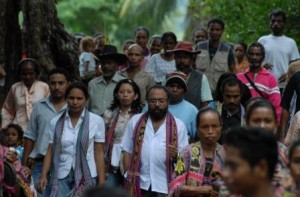Timor-Leste invests on Renewable Energies

One of the big objectives of the IV Constitutional Government is to finish with the external dependency of energy supply through the national development of alternative and renewable energies source. In the Government program one can read that “the implementation of a global plan, adjusted and in phases, will contribute for the extension of the energy distribution in the whole country, with strong impact in the improvement of the people’s quality of life and the promotion of investment and industrial growth, potential sources of job creation and revenues for the State”.
The Secretariat of State for Energy Policy, responsible for this sector, has already defined an action plan and started to put it in action. A study was done, at the national level, which will allow the development of an energy policy for Timor-Leste. The study was concluded on the 29 May and analysed several sources available in our national territory, such as wind, hydro, biomass and solar energy. The result was promising, as explained by the Secretary of State for Energy Policy, Avelino Coelho: “the study shows that Timor-Leste possess a strong potential in the renewable energies area. If these are well explored, altogether, they can produce an installed capacity of 451 megawatts, or in other words, enough energy to supply the whole country, thus constituting, our energy matrix. The potential for hydropower is 252 megawatts. If we connect all this energy to the pumping system we can get an additional 100 megawatts. The potential of wind energy is 72 megawatts, an installed capacity that will be distributed between the future wind parks of Larigoto, Bobonaro, Baucau, Fohobogor, Khoholau and Laleia”.
The Draft Base Law for Renewable Energies, which is being prepared for presentation to the Council of Ministers, predicts the creation of a fund for the renewable energies and the mechanisms of its exploitation. The diploma also reinforces the importance of human resource training in this area. “There was an idea that the riches of Timor-Leste were only in oil and gas but, in reality, the study indicates that we have a great potential for renewable energies”, said the Secretary of State for Energy Policy.
Another project in study, which may be fundamental to attract potential investors, is the construction of a national laboratory for the research of renewable energy potential in the country. The Rural Electrification Plan is already in execution phase, one that is based precisely in the use of renewable energies.










































